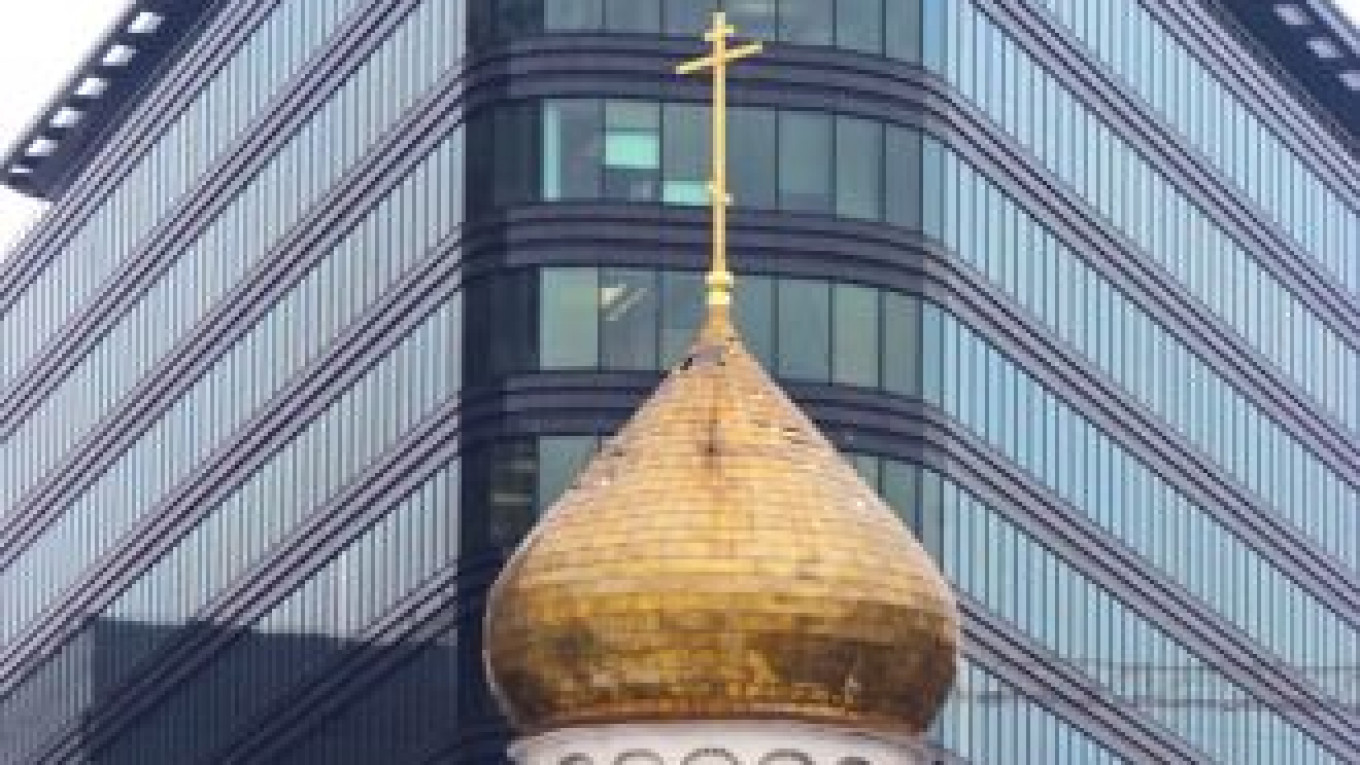Moscow has debuted on the list of world capitals with the largest amount of quarterly commercial real estate investment after it saw a total of $3 billion injected into properties in the last three months of 2012.
The Russian capital was tied for 8th and 9th places with Washington D.C., which saw the same volume of investment from October through December, according to a survey released by Jones Lang LaSalle last week.
New York took the lead of all 10 cities on the list. Investment into commercial properties in the Big Apple totaled $9.9 billion, the survey said. The U.S. metropolis was closely followed by London with $8.8 billion. The ranking, which is complied by Jones Lang LaSalle quarterly, also includes Paris ($5.6 billion), Seoul ($4.7 billion), Seattle ($4 billion), Hong Kong ($3.2 billion) and Los Angeles, which was in 10th place with $2.8 billion of investment.
The calculation of the investment volume in each country only considers deals with existing properties, not those under construction, the consulting company said in a statement.
Among the transactions that contributed to Moscow's performance in the fourth quarter was the purchase of the White Square office complex by O1 Properties for $1 billion in December, in what became Russia's largest ever office deal.
Moscow accounted for over 90 percent in the total investment into commercial properties in Russia in 2012, bringing the full-year volume to $8.7 billion, according to the report.
Although a record for Russia, the figure is still "not impressive" when compared at the country level, Jones Lang LaSalle said. In 2012, the United Kingdom recorded $52 billion of investment into commercial properties, while Germany and France saw $31 billion and $21 billion, respectively.
Jones Lang LaSalle said Russia might show even more modest results this year, with the overall investment into commercial real likely to slide to $7.5 billion.
"The rationale behind that is not about investor interest, it is really about the product. Record figures are due to large deals, and the market does not forecast any similar ones in the near future," said Tom Devonshire-Griffin, regional director and head of capital markets at the real estate firm.
Investors are likely to remain committed to the Russian market, with a growing number of them expected to come from abroad. But their interest will apparently be at odds with the number of attractive options to invest in, said Stanislav Bibik, executive director of capital markets at Colliers International.
Prime quality offices, for example, account for just 10 percent of the 2.5 million square meters of Class A properties currently available in Moscow, said Stanislav Bibik, executive director of capital markets department at Colliers International. Such offices, like the White Square complex or Ducat Place III, are located in the most prestigious business districts of the city center.
"The amount of high-quality stock that a foreign institutional investor can really look at is extremely limited," he said.
One of the main reasons for the deficit of prime office investment properties is that the domestic market for commercial real estate is much younger than in most developed countries, with construction of high-quality offices having started only five to 10 years ago.
"There hasn't been enough time to catch up with London, New York or Hong Kong, in terms of the amount of high-quality stock," Bibik said.
But there is good potential in Russia to boost investment into commercial property, since it currently accounts for just 0.4 percent of the country's gross domestic product, Devonshire-Griffin said. This is significantly below Britain's figure of the 2.1 percent of GDP, he added.
The retail segment might be a potential driver for growth, since investors are likely to be attracted to high-quality shopping centers that will be completed in the regions, he said. "As a result, not only the overall real estate investments will grow, but the ratio of deals in the capital versus those in the regions will approach European levels as well."
Contact the author at irina.filatova@imedia.ru
A Message from The Moscow Times:
Dear readers,
We are facing unprecedented challenges. Russia's Prosecutor General's Office has designated The Moscow Times as an "undesirable" organization, criminalizing our work and putting our staff at risk of prosecution. This follows our earlier unjust labeling as a "foreign agent."
These actions are direct attempts to silence independent journalism in Russia. The authorities claim our work "discredits the decisions of the Russian leadership." We see things differently: we strive to provide accurate, unbiased reporting on Russia.
We, the journalists of The Moscow Times, refuse to be silenced. But to continue our work, we need your help.
Your support, no matter how small, makes a world of difference. If you can, please support us monthly starting from just $2. It's quick to set up, and every contribution makes a significant impact.
By supporting The Moscow Times, you're defending open, independent journalism in the face of repression. Thank you for standing with us.
Remind me later.






